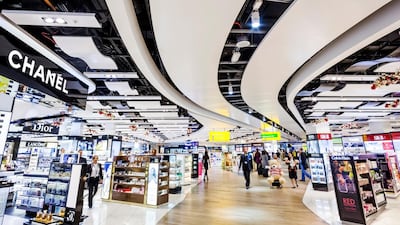Heathrow’s appeal against the UK government’s decision to scrap tax-free shopping for international tourists is being heard on Monday by the UK High Court.
The London airport claimed that the government failed to consider the "devastating impact" of abolishing the VAT Retail Export Scheme and an Extra Statutory Concession on items at tax- and duty-free shops - but this was rejected by the court in December last year.
The judge ruled that it was impossible to “draw the inference that responses were ignored simply for the fact the conclusion reached was not the one supported by the majority of respondents.”
While acknowledging the claimants’ sincerity, he said it was not the court’s role to “micromanage” or “rewrite” consultation procedures.
The requirement to pay VAT on goods such as perfume, clothes and electronics purchased in UK airports came into effect on December 31 2020, at the end of the Brexit transition period.
How aviation has been affected by Covid
Aviation has been badly affected by the coronavirus pandemic and the attendant decline in passengers.
The number of scheduled flights in the week starting January 4, 2021, was down 43.5 per cent, compared with the equivalent week in 2020, according to online data platform Statista.
Heathrow has been particularly badly hit, and in October lost the mantle of Europe's busiest airport to Paris-Charles de Gaulle.
"Tax-free shopping by international visitors pumps £3-4bn pounds into the UK economy annually, supporting thousands of jobs across the country," a Heathrow spokesperson told The National.
"The UK is now the only country in Europe to impose a ‘tourist tax’ on visitors which will not only hamper the country’s economic recovery when international travel resumes, but make the UK less competitive."
UK retailers, hoteliers and airports said it would put 70,000 jobs at risk and trigger a £10 billion ($14bn) reduction in spending in British stores. They calculated it would cost the UK finance ministry £2bn in lost tax revenue.
Since this statement the industry’s plight has become even more parlous with the tightening of an array of Covid restrictions - including the removal of travel corridors.
Since mid-January, all travellers to Britain have been required to provide a negative coronavirus test and quarantine at home for 10 days on arrival.
These measures were ramped up on February 15 when those entering the UK from so-called 'red list' countries were required to spend 10 days in a quarantine hotel.
Having previously been in a travel corridor with the UK, the UAE is on the red list along with over 30 other countries.
It is feared a reduction in wealthy Middle-Eastern travellers will compound the economic damage to the industry.

